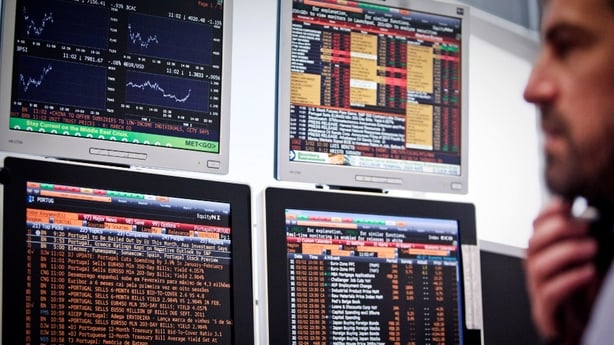Germany's 10-year government bond yield turned negative for the first time today.
The drop came as concern that Britain could vote to leave the European Union in a referendum next week sent investors scrambling for safe-haven debt.
The benchmark for euro area borrowing costs fell 6 basis points to -0.032% after a second poll in recent days showed a big lead for the "leave" campaign.
Meanwhile, bookmakers have slashed the odds on a Brexit and Britain's biggest-selling newspaper urged readers to quit the bloc.
Lower-rated bonds in southern Europe fell out of favour with investors as the June 23 vote is expected to further dent support for the EU, especially in countries like Italy, wrestling with low growth and high unemployment.
German bond yields with a maturity out to 10 years joined a global club of negative-yielding sovereigns bonds worth more than $10 trillion.
Five-year yields also hit a new record low of -0.48% today while two-year yields were within a whisker of a new trough at -0.57%.
Half of the German government bonds on the shopping list of the European Central Bank's quantitative easing asset-purchase programme are ineligible because they yield less than the deposit rate, Swiss wealth manager Pictet said.
If the ECB does not relax its own restrictions on purchases it risks running out of the German bonds it can buy by year end, analysts at the likes of Citi and Danske Bank estimate.

Meanwhile, the gap between the borrowing costs of the euro zone's lowest-risk borrower and peripheral governments in Italy, Spain and Portugal hit their widest levels since February.
Spain's acting economy minister said today that he expected more short-term market turbulence due to Brexit and other factors, while the International Monetary Fund said the vote in Britain would add to uncertainty at a time of global weakness.
Meanwhile, sterling remained fragile near a two-month low today and world stocks slid for the fourth day in a row.

